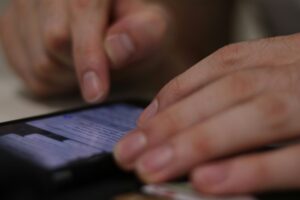 As previously discussed on this blog, last month, the Florida legislature passed a bill that outlaws Internet sweepstakes cafes (or “sweepstakes parlors”) in seeming response to a scandal involving the Florida Lieutenant Governor Jennifer Carroll and her in involvement in Florida-based Internet sweepstakes cafes. The scandal led to Lieutenant Governor Carroll’s eventual resignation. Yesterday, Governor Rick Scott signed that bill into law. The Florida law puts Florida in line with Pennsylvania, but at odds with North Carolina, in terms of these states’ respective treatment of Internet sweepstakes parlors.
As previously discussed on this blog, last month, the Florida legislature passed a bill that outlaws Internet sweepstakes cafes (or “sweepstakes parlors”) in seeming response to a scandal involving the Florida Lieutenant Governor Jennifer Carroll and her in involvement in Florida-based Internet sweepstakes cafes. The scandal led to Lieutenant Governor Carroll’s eventual resignation. Yesterday, Governor Rick Scott signed that bill into law. The Florida law puts Florida in line with Pennsylvania, but at odds with North Carolina, in terms of these states’ respective treatment of Internet sweepstakes parlors.
By way of background, Internet Sweepstakes cafes usually consist of rows of computer terminals featuring online games that are played for some type of fee. The online games in question aggregate games of chance and allow users to participate in several such contests in quick succession. In exchange, users must pay the cafe proprietors – typically for Internet access or prepaid phone cards.
The new Florida law explicitly states that it is illegal for an electronic device or system that accepts currency or coins, or account numbers and codes, to award players extra credits, prizes or anything else of value (although there is a carve out for games of “skill,” not “chance,” with limits of 75 cents or less per payout).
Electronic gaming devices located in casinos, racetracks and tribal reservations are exempt from the law. Nevertheless, significant questions remain regarding the wording of this law, and whether it would hinder any future attempts to legalize Internet poker/gaming in the State of Florida.
The evolving regulatory and statutory approach to Internet sweepstakes parlors is a significant topic for all gaming attorneys and those interested in Internet sweepstakes parlors, poker and gambling in general.
If you are interested in learning more about this topic or pursuing a gaming venture, please e-mail us at info@kleinmoynihan.com, or call us at (212) 246-0900.
Attorney Advertising



